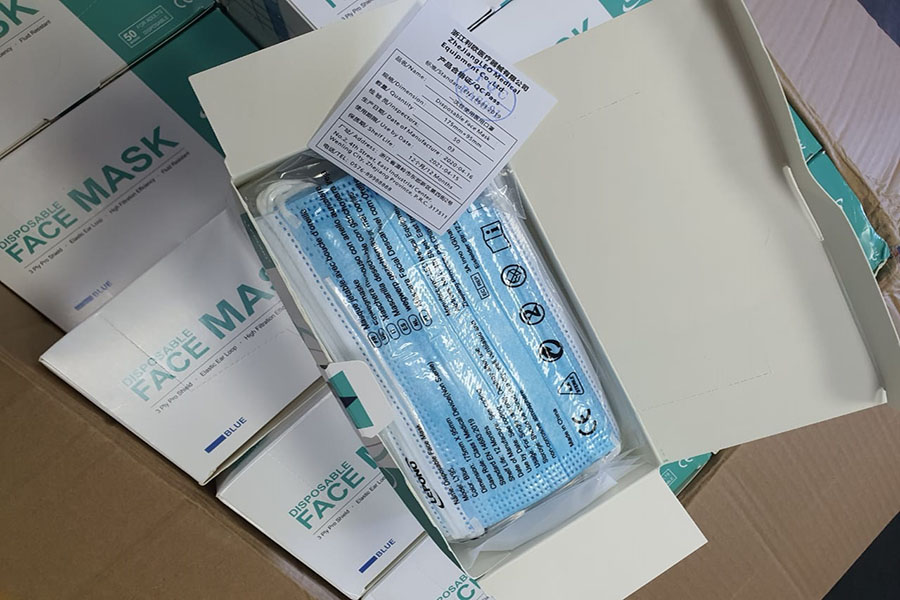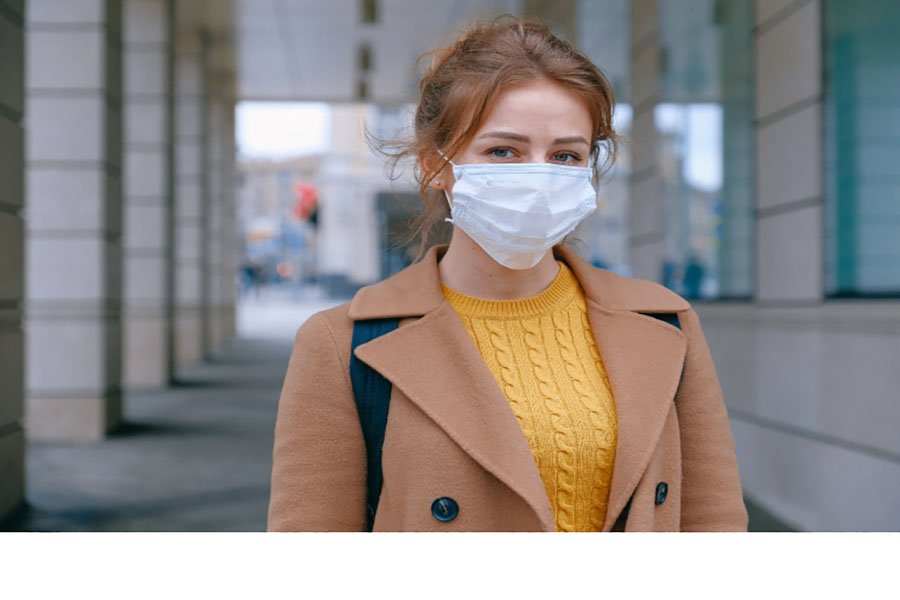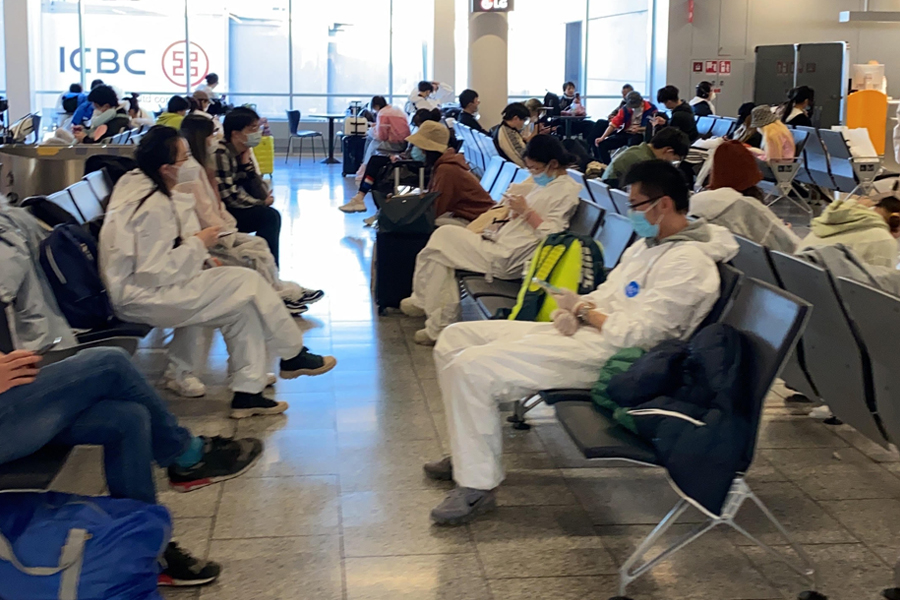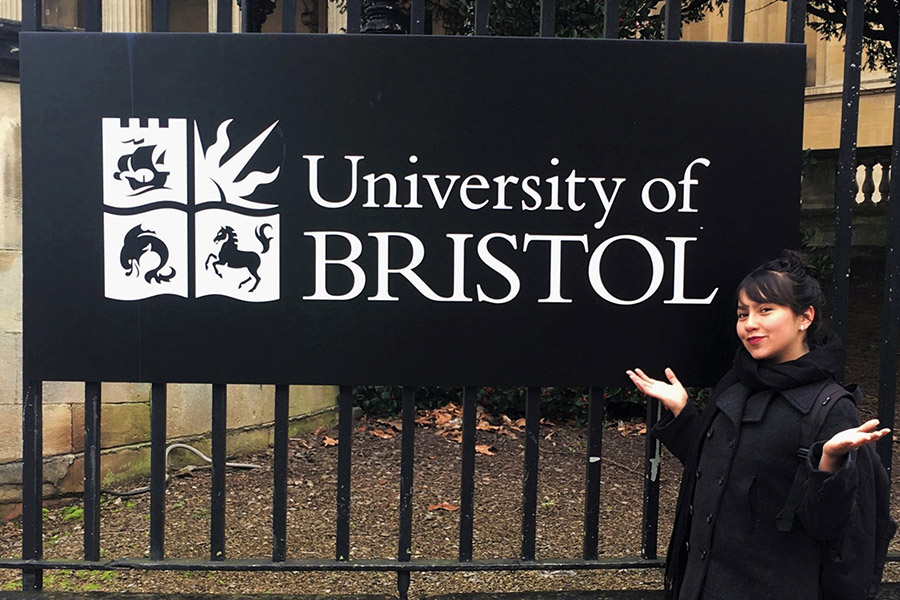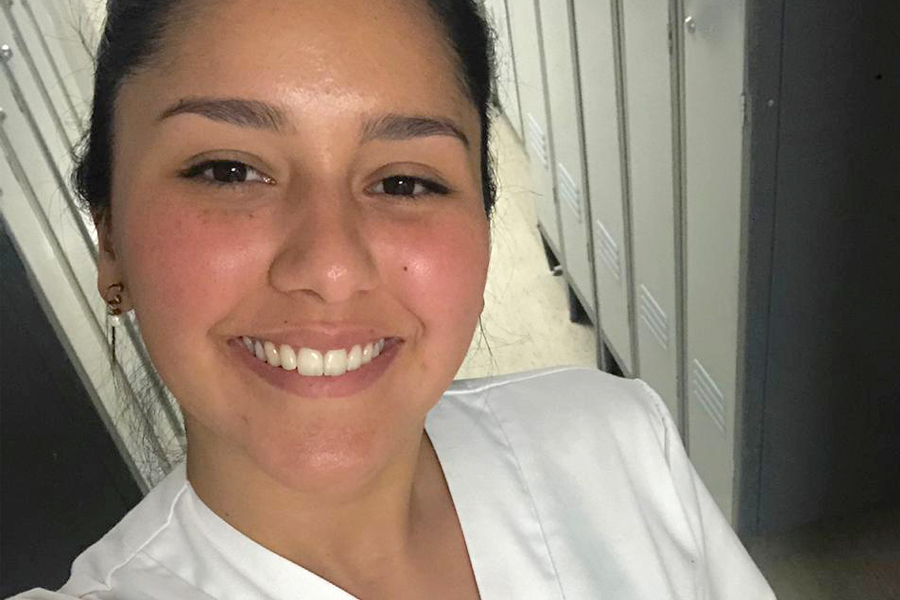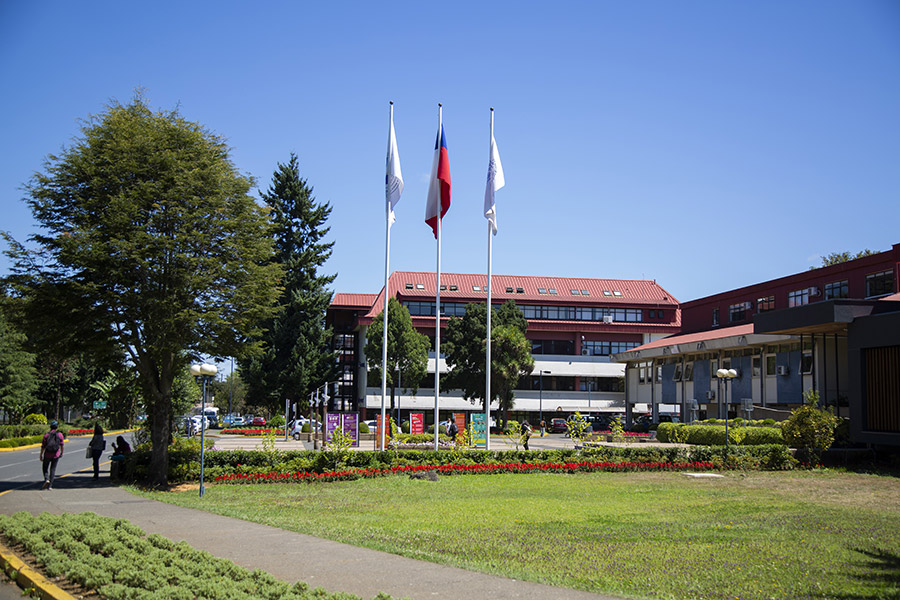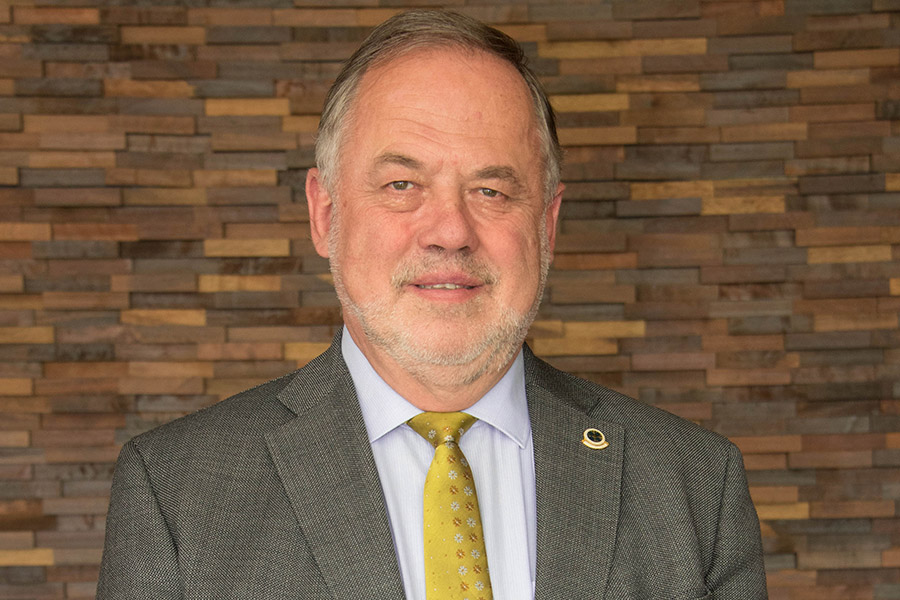|
Three months ago, the online course “Basic English for Tourism” started. The Unit for Continuing Education of Pucón Campus of the university Universidad de La Frontera (UFRO) came up with this online training initiative and the objective of it is to provide tools during this pandemic for the reactivation of the tourism industry in the Araucanía Region when this global health crisis is over. The courses are completely free of charge and designed for entrepreneurs and people working in the tourism industry. Boris Mutizabal, a teacher at the Pucón Campus of UFRO, has prepared the classes and the first course, in which the students learned through didactic contents and practical sessions that encouraged them to interact with each other, finished on August 12. This first course had 17 participants, divided into two groups. The course included two one-hour classes per week and different activities and tests on the platform Google Class, in order to achieve a fluid conversation with English-speaking tourists and for being able to sell their services online or in person, as well as to do outdoor activities with English-speaking tourists and to guide them. Written by: UFRO Pucón Campus
|
|
This gesture is based on the promising collaboration between the two universities, which are already working on initiatives of exchange for the time after the pandemic. |
The fruitful partnership was celebrated last year, when a delegation from the Chinese Zhejiang University of Science and Technology visited Chile and the Araucanía Region to sign a Cooperation Agreement with the Universidad de La Frontera (UFRO). The meeting allowed to strengthen the partnership, through conversations between Fengmin Wu, the chair; academic representatives; Xu Bu, the ambassador of the People's Republic of China in Chile; Eduardo Hebel, the rector of UFRO; and several vice-rectors, deans and directors of the UFRO nuclei. Now, the Chinese university sent a donation to UFRO, consisting of one thousand face masks, in order to contribute to the prevention of the spread of coronavirus. In this regard, the rector of UFRO, Eduardo Hebel, has shown his appreciation in a letter: “The difficult moments the world is facing due to COVID-19 do also have an impact on Chile and our city. However, little by little, we are making progress and the city of Temuco is slowly starting with the different phases of deconfinement.” The use of a mask is extremely important, warns Dr. Hebel, “and this donation is a significant contribution, thanks to which our employees are going to be able to carry out their work safely, and complying with the safety and health protocols established by the authorities”. In fact, the masks were handed over to the Risk Prevention Unit at UFRO, which has been working voluntarily in accordance with the safety regulations since the first case of Covid-19 was found in Temuco. Dr. Lorena Vieli, the director of the International Affairs Office at UFRO, highly appreciates this gesture of the Chinese Zhejiang University of Science and Technology, because “this donation reflects our solid partnership with this university and we hope that we are soon going to be able to award two scholarships for graduate students, offered by Zhejiang University”. Written by: UFRO Communications Office |
|
The International Affairs Office provided continuous support for UFRO students abroad during the current health crisis. |
When Javiera Fuentes, who is a student at the Universidad de La Frontera (UFRO) and who went to England thanks to the program “English opens doors”, arrived after a 14-hour flight from Bristol, she was a little bit tired. But that was not only because of the long flight and the distance between these two countries. It was also because of all the great experiences she made during this opportunity of a lifetime. Despite the pandemic, the UFRO students who spent a semester abroad did everything possible to continue with their studies and the activities that were part of their exchange programs. “The first few days, I made some progress in the subjects I wanted to take. It was quite complex to deal with the health crisis, but at the University of Bristol everything kept working well. The classes, for example, were carried out remotely,” Javiera explains. Javiera was able to fulfill her objective and to acquire new language skills and knowledge, which will be very helpful for her English Teaching studies at UFRO. But she also emphasizes that this experience helped her to grow as a person and to acquire new skills when it comes to problem-solving in complex situations. Javiera Solano, who had started an internship at the Dr. Josep Trueta Hospital in Spain, had similar experiences. The young UFRO student of the Nursing program went to Spain thanks to the different agreements of UFRO with foreign universities – in this case of the Faculty of Medicine with the University of Girona. “I was able to work at the hospital for 2 months, when the university decided to send me back home, given the shocking spread of coronavirus. Actually, many exchange students had to consider their return. However, during the time I was there, first, I joined the Cardiac Intensive Care Unit and then the Endoscopy Unit. In addition, I also had another interesting challenge, which was the Catalan language. Although most people speak Spanish, they love to speak their own language,” she explains. It was a challenging time for Javiera Solano as well, but it helped her to see that she is capable of coping with any challenge, even when she is far away from home. “I’m glad that I got the chance to get to know the way a hospital of that size and complexity works – the shift system, the good treatment and friendliness between the teams and team members. All in all, it was a great learning experience that encourages me to look to the future in a positive way,” she points out. Some exchange students had to change their plans for the first semester of 2020. Some of them were able to complete the six months, and others only half of that, since the global situation caused by COVID-19 is highly complex. “As soon as the number of COVID-19 cases began to increase, the authorities proposed that the international students should return earlier,” explains Constanza Soto, who had just started her student exchange at Karlsruhe Institute of Technology in Germany. When she arrived in Germany, the UFRO student in Civil Industrial Engineering, with specialization in Bioprocesses, felt that everything was completely normal, but after a few days, she started to notice the consequences of the first outbreak of COVID-19 in Germany. “The university warned us very quickly and I had to finish the exams online. But the good thing is, that they offered us to carry out our exchange semester in 2021. At least, that is something that relaxes me a little bit. During this experience, I have learnt not to get frustrated that easily and that even this kind of situations can bring something positive,” she comments. All of the exchange students have been very grateful for the management of the International Affairs Office and the Student Mobility Unit of UFRO during this exceptional situation. In this regard, Dr. Lorena Vieli, the director of the International Affairs Office, points out: “The well-being of all our students who have been abroad since COVID-19 was declared a pandemic has been a clear priority for us. The Student Mobility Unit has been in permanent contact with all of them, in order to monitor their situations and to help them with their return. In this respect, the Chilean consulates abroad have also been an important support for the coordination of the students’ return and we are very happy that all our undergraduate students were able to get back home and that they are all in good health.”
Written by: UFRO Communications Office
|
|
Workshops for teacher development, virtual support services, platforms with specific information and online resources for remote learning are part of the offer at UFRO, in which the university’s academic staff is participating. |
The current pandemic is causing transformations in higher education. It is a time of complex challenges, which has led the university Universidad de La Frontera (UFRO) to carry out the first semester of 2020 online and to change to remote work. Therefore, the university community started to prepare themselves through the offer of workshops and courses and to learn and improve the required skills and strategies in order to carry out this task successfully. More than 30 workshops for the teaching staff of the faculties were carried out in order to support the positive development of the remote teaching and learning experience. The Vice-rector for Undergraduate Affairs has led the transition, by connecting this reality with the knowledge of national and foreign peers, implementing possible aspects of distance education, supporting the academic staff and providing them with the proper tools. The university also developed psychological and academic support measures for the students, with the help of the Office of Comprehensive Training and Employability. “We have also taken on the responsibility of supporting the implementation of remote teaching at our university by incorporating various strategies. We are working with groups and individually, with the faculties and their teachers, and we will continue with our support through more and new initiatives that will be oriented towards the prioritization of learning results, contents, methodological and assessment strategies, within the context of a pandemic,” explains Solange Martínez, the director of the Office of Curricular and Teacher Development. WORKSHOPS FOR THE FACULTIES AND PUCÓN CAMPUS “There are several ways to carry out different asynchronous activities, and we have been able to show that, in order to make an optimal use of the resources and tools available. It has been a challenging time, but we have been working with a lot of dedication and commitment,” says Pamela Coronado, the advisor and facilitator of the UFRO Office of Teaching Development and Methodological Innovation. The university recently carried out a series of workshops in different fields through the Virtual Campus platform. The responsible units for these workshops were the Faculty of Agricultural and Forestry Sciences, the Faculty of Law and Business, the Faculty of Medicine and the Pucón Campus of UFRO. For Soledad Morales, an academic staff member of the Faculty of Law and Business, the training sessions have been a success, “not only because of the support or help in the field of virtual teaching, but also because they gave us the feeling that we are not alone in this as a teacher. We were able to express our mayor concerns and to solve different issues. They have really adapted to the requirements of online teaching”. Dr. Claudia Barchiesi of the Faculty of Agricultural and Forestry Sciences adds that the support was essential, especially for the academic staff that was not really used to and prepared for this kind of teaching. “In my case, besides the instructions on how to use the Virtual Campus, which I really appreciate, it is the continuous support for the development of learning strategies or appropriate methodologies and instruments for assessment, which really help me and which I am grateful for,” she explains. For the majority of the academic staff at UFRO, this series of initiatives to promote and strengthen remote teaching and learning during this online semester, provide essential insights and guidance and will always be remembered as part of the university experience during this pandemic that has changed our lives. The teacher Hugo Sanhueza admits that he once thought that technology (digital resources) was only something supplementary. “Thanks to the health crisis, I now think different about that, so I started to improve my skills and to adapt, and I’m very grateful for the effort and commitment of the University in order to support us. The process has been challenging and I think that we need to motivate our students even more. That’s the way I have tried to teach the subject of Administration and Functioning of Public Management,” he comments. In addition to the workshops for academic staff, UFRO has created spaces for the exchange of experiences with national and foreign experts to obtain some guidelines for distance education; recommendations on aspects of methodology and assessment have been implemented; and a platform for information and feedback has been designed (docenciavirtual.ufro.cl). At the same time, the Academic Council has included additional regulations for being able to derogate from the application of the UFRO Undergraduate Regulations, considering the extraordinary circumstances of this semester.
Written by: UFRO Communications Office
|
|
|
Data exchange and “smart” citizens, who are autonomous and socially aware – these could be the keys for today’s cities in order to finally evolve to the concept of a smart city. The idea is to create smart cities with universal management standards to improve the citizens’ health, among others. This is especially important in the context of a pandemic, such as the one we are currently facing. It will clearly not end in 2020 and could appear again in the future, perhaps with other infectious agents. At least that is what the experts say, and the lessons we have learnt from Covid-19 cannot be ignored. We are aware that we must take care of ourselves within this pandemic, but how can the concept of a smart city help with that? As an example, I would like to quote a study of the World Economic Forum, which, based on an article by the Newcastle University in England, analyzed how different technologies for smart cities can help to track the movement of people in a city. These technologies are used to monitor the flow of pedestrians and public transport users, so it should also be possible to verify how many people are moving around, for traceability and social distancing purposes. In Temuco, the Smart Araucanía project is financed by the Inter-American Development Bank (IADB), the Production Development Corporation (Corfo) and the Regional Governments of Chile (GORE). It promotes an infrastructure to facilitate the interaction between startups, citizens, authorities and companies, and the Universidad de La Frontera (UFRO) is an active part of this endeavor. Within this framework, researchers from the Center for Software Engineering Studies (CEIS) and the Department of Electrical Engineering of the School of Engineering and Sciences are developing an app to monitor the air pollution in real time, and to obtain information from 30 different locations in Temuco. This is how “AIRE” – the app, which is already available in your App Store and Google Play and which is free of cost – allows you to know the levels of particulate matter in each of the locations and to receive an alert in case of any critical situation. Given the increase in the number of COVID-19-cases and the negative effect that the air pollution can have on the spread of the virus, the app is becoming a valuable guide for the citizens of Temuco. Once again, this is an example of how science and technology are at the service of people, especially in such hard times as we are currently facing, and UFRO is aware of that. |






